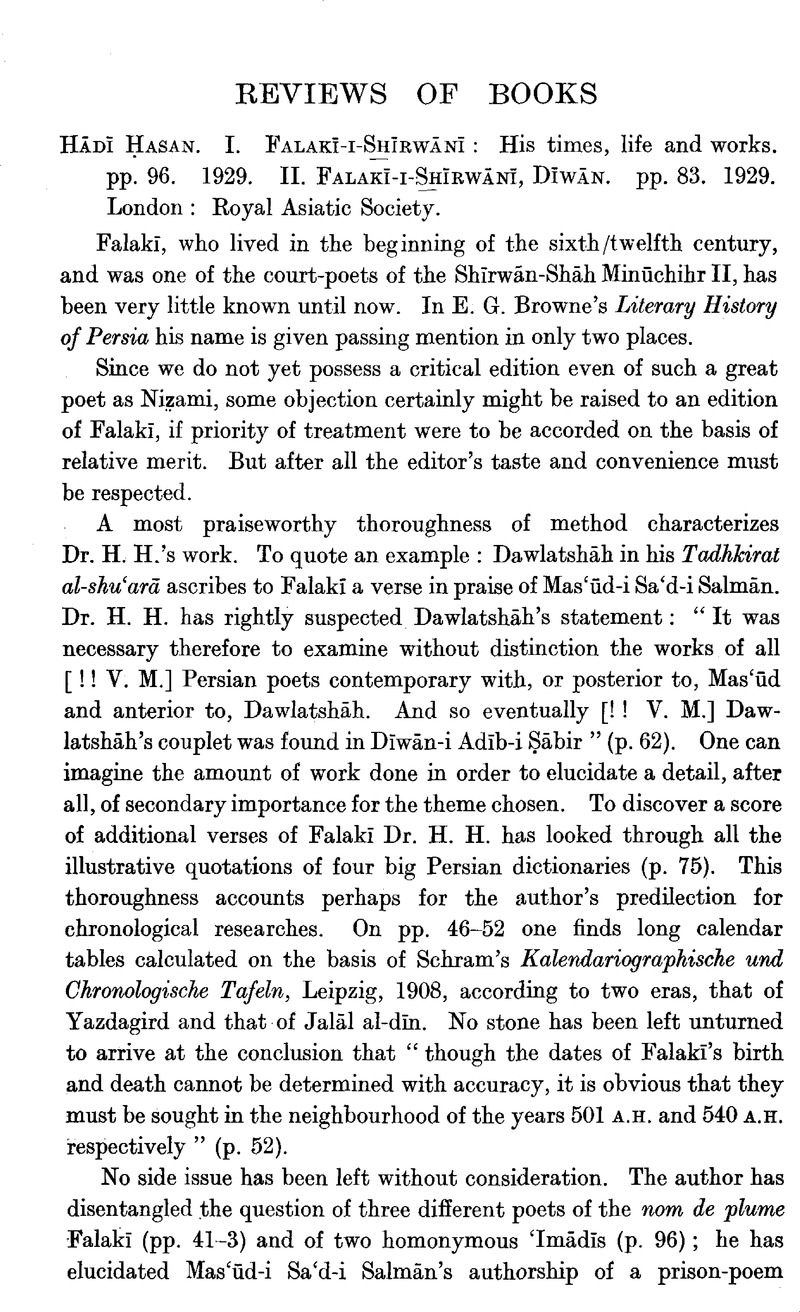No CrossRef data available.
Article contents
Hādī Ḥasan. Falakī-i-Shīrwānī. His times, life and works, pp. 96. 1929. Falakī-i-Shīrwānī, Dīwān. pp. 83. 1929. London: Royal Asiatic Society.
Published online by Cambridge University Press: 24 December 2009
Abstract

- Type
- Reviews of Books
- Information
- Copyright
- Copyright © School of Oriental and African Studies 1930
References
page 904 note 1 The local historian 'Abbās Quli khān Bākī-khānov in his Gulistān-i-Iram, Russian translation edited in Baku, , 1926, p. 166Google Scholar, says that Khaqani's father was a joiner from the village Malhamlu, near Shamākhī.
page 906 note 1 The local pronunciation of the name of the protector of Abū-'l-'Alā, Khāqānī and Falakī (avestan Manuščiθra) seems to be Manuchahr > Manūchar or Manūche, see Justi, , Iran. Namenbuch, p. 191Google Scholar, and the transcription by the local historian Bākīkhānov.
page 907 note 1 With regard to v. 930 in the Dīwān, where Falakī calls the dynasty tukhma-yi Ārash-u-Bahrām, it may be remembered that a little town south of Shekkī bears the name of Ārash.
page 907 note 2 In Russian see Pakhomov, 's useful Short Essay on the History of Azerbaijan, Baku, 1923Google Scholar (utilized by Dr. Hādī Haṣan) and Barthold, 's, Mesto prikaapiiskikh oblastei (“The place in the Moslem history of the provinces lying round the Caspian sea ”), Bākū, 1925.Google Scholar
page 909 note 1 Even now one of the small rivers in the basin of the Tsna (flowing into the Oka) is called Burtas.SeeMarkov, A. V.Otnosheniya mezhdu Russkimi i Mordvoyu v istorii, Tiflis, 1914, and Barthold in Enc. of Islām.Google Scholar


